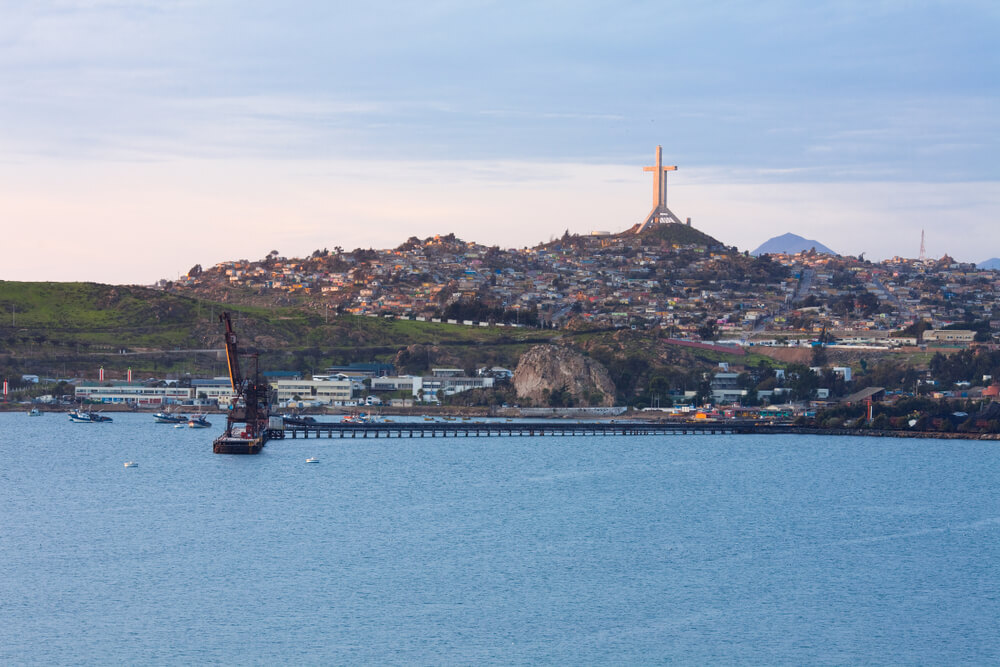European Good Practice Models applied to Tourism in the Coquimbo region
The Eurochile Business Foundation promotes the transformation of tourism MSMEs in the Coquimbo Region, based on sustainability and drawing on successful tourism models and experiences in Spain.

Good practices are a set of actions and activities that contribute to reducing the use and optimising the use of natural resources, thereby reducing the negative impact of everyday activities on the environment. There is full consensus in Europe on the importance of developing and implementing this instrument to address the adverse effects of climate change.
In this context, Global Tourism plays a key role in the process of adaptation and energy transition of products and services, due to its contribution to the economy and to the mobility of millions of tourists around the planet. Spain is a leader in the development of Sustainable Tourism, being a destination par excellence that has generated added value through the application of sustainability strategies in environmental, social, energy, water and waste management aspects.
Based on successful Spanish experiences and models, the Eurochile Business Foundation is promoting a process of sustainable transformation of the tourism activity in the Coquimbo region through the programme “Regional Tourism with Circular Economy”, financed by the Regional Government through the Innovation Fund for Competitiveness (FIC). This programme has a duration of 18 months and represents an important challenge in the transition towards an approach of adaptation and energy transition in the different tourist destinations and products offered in the region.
In the different modules of the programme, MSMEs have been encouraged to apply good practices in the tourism services and products they offer, based on successful experiences developed in Europe and taking as a reference the service offered by Spain. In this regard, important European experiences stand out that have adopted circular economy principles to promote Sustainable Tourism. Spanish Tourism Companies are committed to measuring the carbon footprint in the supply chain, science-based decarbonisation, boosting the use of renewable energies, promoting sustainable mobility and fostering digitalisation.
Successful experiences of good practices are highlighted in various areas of tourism, such as accommodation, excursions, restaurants, events, among others. In the accommodation sector, the Spanish chain Iberostar is an outstanding example of the incorporation of circularity measures. Thanks to a clear commitment to sustainability and circularity, and after carrying out a self-diagnosis of its initial situation, the Iberostar group developed its own sustainability policy, focused on five long-term commitments.
The Iberostar group is at the forefront of circularity at an international level, not only seeking to convert its hotels into circular establishments, but also to transform the destinations where they operate. Among the many commitments they are making as a hotel group are: the creation of a waste management department to implement reduction and disposal strategies with a focus on the circular economy, the development of an energy efficiency plan with annual targets for the reduction of greenhouse gases, the minimisation of the company’s environmental impact and the promotion of a responsible local sourcing and consumption model, as well as the use of sustainable materials in new constructions.
Another example of a commitment to circularity, in this case linked to catering, is the LebonPicnic initiative in France. It is a one-stop, click-and-collect service that allows cycle tourists to find and buy locally produced picnics while exploring rural France. An online marketplace connects users with a network of local artisan food producers, including butchers, charcutiers, bakers, confectioners, grocers, caterers and restaurants, from whom they can place orders for next-day pick-up.
In this way, the traveller is offered a picnic option that is 100% artisanal and uses fresh, seasonal and local products whenever possible. In addition, LebonPicnic promotes the use of recyclable or biodegradable containers and packaging, and thanks to its on-demand production system, avoids food waste.
In the field of waste revaluation, the case of DeleiteWear is a great example. DeleiteWear’s proposal consists of reusing textile waste from accommodation and restaurants to transform them into uniforms and merchandising with social and environmental value. The garments designed by DeleiteWear often include an embroidered message to highlight the positive impact they generate, such as “I am a sheet with a second chance and I have saved 2500L of water”. In addition, DeleiteWear garments are made locally in social insertion workshops in Spain.
On the other hand, in terms of sustainable travel and tourism experiences, the Intrepid Travel agency is a benchmark. Many of its trips incorporate circularity principles that can serve as a model to follow.
Ultimately, experts indicate that the adoption of measures incorporating good practices will depend on the reality and context of each tourism enterprise. However, the availability of options, solutions and adaptation mechanisms is diverse, so the opportunity to initiate the process of change will depend on the willingness of each entrepreneur and tourism destination. The path towards sustainability in tourism is already mapped out, and it is essential to face the new challenges and challenges.
